It seems like everyone and their mother claim to be a “photographer” nowadays.
And thanks to iphone cameras getting better and better, it might seem like the photography industry is probably dying out.
WRONG.
The art of professional photography is alive and well, and it is still possible to start a photography business in 2025…
Despite the saturated industry.
My name is Ippei, and I’m a master of all things online business, passive income, and local lead generation.
And in this article, I’m going to take you through the nine steps to starting your photography business today.
Plus, we’re going to take a look at the realistic startup costs for this business model, and the average profit margins for the photography industry.
Let’s do this thing.
How to Start a Photography Business in 2025
Thinking About Starting a Photography Business? Here's What You Should Know:
Starting a successful photography business doesn't happen overnight. To get started, you will need to get your photography business legally established, choose the right niche, invest in education and equipment, work on building your portfolio, create a website for your brand, and learn how to market your services.
Start Up Costs
While this list is not a comprehensive compilation of everything you need to start a photography business, it provides a snapshot of what you need to add into your business plan.
Annual Revenue of Established Photography Business
According to Zip Recruiter, the average annual revenue of this kind of business is: $129,394-$238,689
Profit Margins of Established Photography Business
According to this website, the average Profit margin of this kind of business is: 35-50%
Quick Start Checklist:
1. Write Business Plan
Many beginning photographers launch their businesses without giving a second thought to setting up the required legal administrative aspects of their business.
Whether you want to blame this on the free spirited, right brained, creator mentality that is so often found amongst photographers and artists…
Or simply on a lack of knowledge, I strongly encourage you not to be one of these people.
If you are going to take your photography career from a standard side hustle or hobby into a full time business…
Then you need to act and operate like a business owner.
And this starts by forming a legal business entity, and following the required and necessary steps for creating a functioning and thriving business.
To begin with, you’re going to need an LLC.
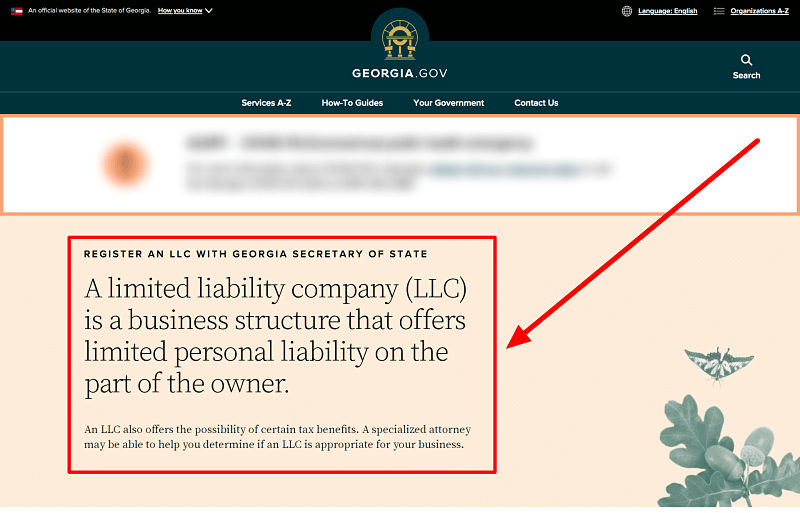
While you could make do with your automatic classification as a Sole Proprietorship…
This business structure offers little legal protection for you as the business owner.
Whereas a Limited Liability Corporation will offer personal protection for you and your personal assets should your photography business be sued for any reason.
Once you have formed your LLC…
It’s time to register for your EIN number.
To put it simply, your EIN number acts like a social security number for your business….
And it enables you to do everything from filing your taxes at the end of the year, to hiring employees, and even opening a business bank account.

Which brings me to my next point quite nicely:
You need a business bank account.
Full stop.
No if's and's or but’s.
Mixing your business finances with your personal finances is a big no-no, and I can guarantee that your accountant will agree with me.
Lastly, don’t forget about adding some business insurance into the mix.
I’m guessing that your equipment and gear cost you a pretty penny…
And it would be a shame to not have that stuff protected under insurance.
Look into a general liability insurance policy, as well as a business interruption policy.
2. Choosing a Niche
It can be extremely tempting in the beginning stages of your photography business to take the “anyone and everyone” approach to marketing your services.
In many ways, taking every potential gig that comes your way is a right of passage as a photographer.
You’re an artist trying to make a living, and being picky from the get go doesn’t seem fair.
I get it.
But to play the devil’s advocate here…
If you are trying to speak to everyone, you are ultimately going to speak to no one.

What do I mean by that?
Well, you see, the broader your marketing is…
The harder it’s going to be for you to capture people’s attention.
If you are putting yourself out there as a family photographer, newborn photographer, wedding photographer, and fashion photographer…
Your marketing is going to be so all over the place, that when a potential client finds your work, they aren’t even going to know if you are a good fit for them!
This is where niching down comes in.

You can hone your marketing message, and target your ideal clients directly.
And hey, if you’re hoping to be a fashion photographer, but you’re still shooting some family photo sessions on the side…
That’s perfectly fine!
But don’t market yourself as a family photographer, if you really want to be working strictly on high fashion shoots.
Pro Tip: You don’t have to post every shoot that you do to social media or add it to your website and blog, if it doesn’t add value to the brand that you are wanting to build for yourself!
There are a variety of different niches that you can explore as a photographer, including:
Photography Niches:
And this list is just the tip of the iceberg!
But that is the beauty of the photography world.
There are so many different directions you can go with it, whether you want to pursue journalistic photography, wedding photography, or even nature photography…
Then there’s a market out there for your creativity if you’re willing to work hard enough to find it.
3. Purchasing Equipment
Before you start stressing out because you can’t afford to invest in a $3,000 camera body from day one…
Take a deep breath, and remember that everyone has to start somewhere.
Even if that’s with the $350 crop sensor, digital camera that you already have!
Don’t give in to the pressure to upgrade all your gear immediately just because you want to turn your hobby into a business…
Start with what you have.
In time, you will be able to work your way up to the $3,000 camera of your dreams…
But in the meantime, don’t let your equipment hold you back.
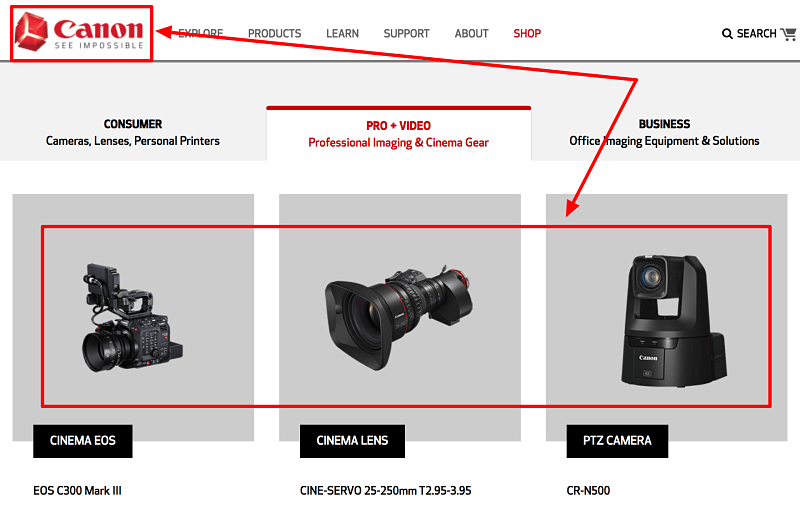
Equipment can either be a crutch or an asset, but the real skill lies in the hands and the creativity of the photographer themselves…
Not in how fancy or expensive their gear is.
Now, that’s not to negate the importance of quality equipment, because that will obviously play a huge role in the final quality of your work, and in the prices you can realistically charge.
The first step however, is simply to choose the brand you want to stick with.
I highly advise doing your research before you settle on a specific brand of camera gear.
I say this because it’s extremely expensive to invest in equipment only to change your mind from Nikon to Canon 2 years down the road.

Switching gear companies is a major decision, because you will have to replace every piece of equipment you have.
Every lens, camera body, flash, and battery pack.
It’s best to do some research in the beginning and decide which company is the right fit for you.
Some of the best and most reliable camera brands in the industry are:
As you progress in your skills, I highly recommend investing in a camera body that has a full frame sensor, rather than a cropped sensor.
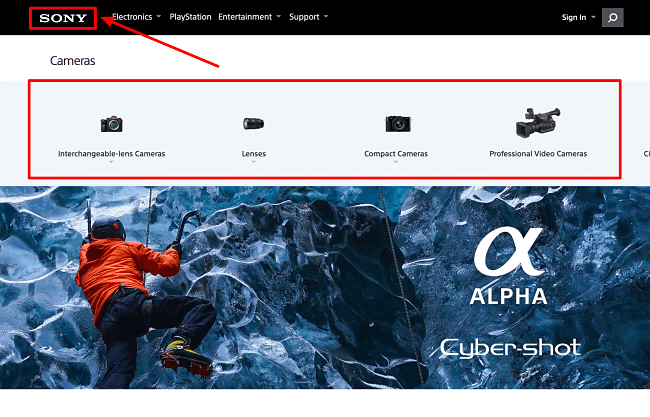
In addition to looking for a full frame camera, you should also consider a camera that has a dual card slot…
So that your images are being backed up to more than one location in case one of your memory cards becomes corrupted.
This protects you from having to deal with the gut wrenching conversation of telling your wedding client that you lost all the images from their ceremony because the SD card corrupted!
And lastly, stay away from kit lenses if you are planning to shoot professional photography.
Kit lenses are the standard, cheap, zoom lenses that come in camera kits.
They typically have very little aperture range, and aren’t high quality enough to be used for professional work.
It’s best to purchase your camera body individually, rather than in a kit.
While these camera kits might look like a good deal…
You’d be better off to purchase the camera body by itself, and then purchase the higher quality lens that you really need separately.
4. Investing in Education
As a photographer, you will constantly be growing and gaining more experience.
But one of the best things you can do for yourself as a beginning (or even a more advanced) photographer is to invest in further education.
And no, I don’t mean that you need a college degree in photography!
That’s all good and fine if that’s what floats your creative boat, but it isn’t necessary by any means.
What I’m talking about is industry specific education that is typically led by other industry leaders.
This type of education will give your photography business the jump start necessary to go from amateur to professional much faster than if you have to learn all your lessons the hard way:
On your own.
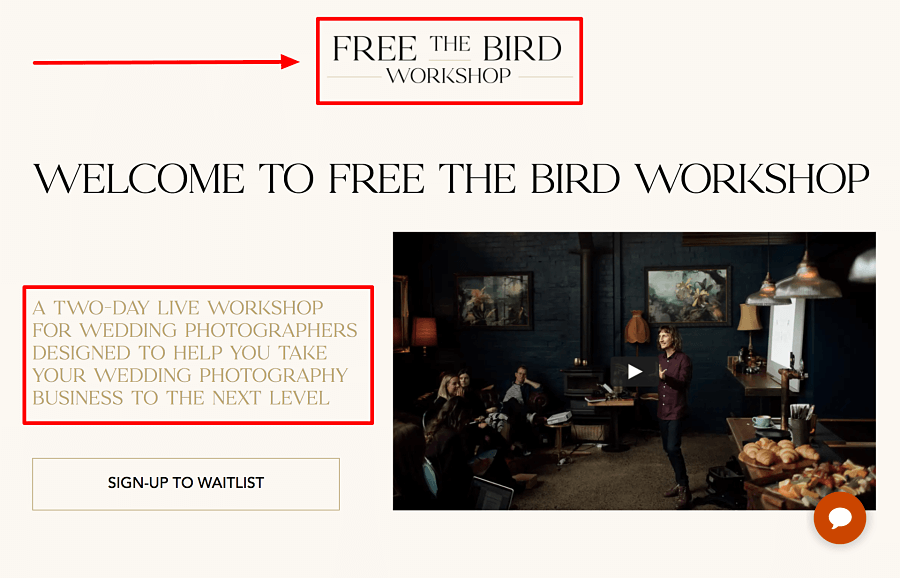
Photography education can come in a variety of forms, and at a variety of different price points.
But typically, these are the most common forms of photography education:
The easiest and most affordable place to start would be learning through Youtube and podcasts.
There is a surprising amount of free, valuable content available on these platforms for photographers!
But if you’re ready to take things a step further, I strongly encourage you to look into an in person workshop or online course.
These workshops and courses can run you several thousand dollars, but the return on investment for your biz and network connections you gain can be well worth the money.
Always thoroughly investigate the course creator or host of a workshop before plunking down your hard earned money, though!
More and more people are slapping together sloppy photography courses to make some passive income…
Or throwing up a half-assed workshop without really knowing what they are doing.
The instructors and course creators should have the experience and industry knowledge to back up the price tag on their workshop or course.
5. Building a Portfolio
One of the most challenging hurdles you will face as an up and coming photographer will be building your portfolio.
When no one knows who you are, and you’ve had very little opportunity to grow your portfolio of work to prove your skills…
It can be hard to book paying clients.
And while this might not be the news you were hoping to hear…
You are going to have to take on free shoots to begin with.
The important thing is that you do this strategically.
The goal is to shoot as much as you possibly can, without blatantly advertising that the work you are doing is for free.
Photograph your friends and family, and just about anyone who will let you, and start building your portfolio through these free sessions.

Secondly, set up styled shoots.
What the heck is a styled shoot?
It’s when you design and plan a photo session that caters to your ideal client and your specific style and brand.
So as a wedding photographer, if you are dying to shoot outdoor weddings in the Rocky Mountains…
Then plan a trip to Colorado, find a couple to model for you in exchange for free photos, rent some wedding attire, hire a florist…
And create your ideal wedding.
This way, when you share this work to your website and social media, you can begin to attract real couples who want a wedding like this!
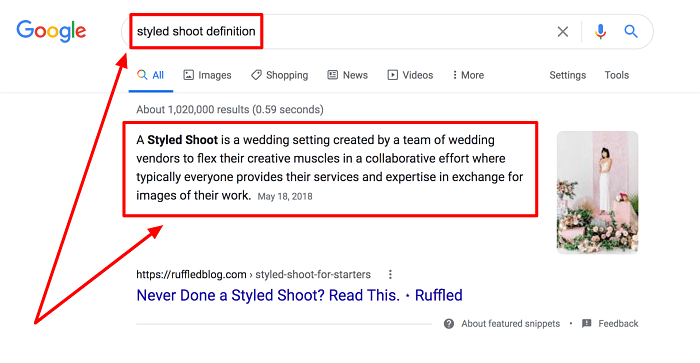
Yes, it will come out of pocket for you at first…
But people are visual creatures.
If someone doesn’t see you creating work that looks like what they are wanting for themselves, they won’t even think to hire you.
You have to show them what you can do, and what you want to do.
Additionally, reach out to other photographers in your area.
Networking is a huge component to running a successful photography business.
Just don’t be sleazy about it.
Don’t pester people to give away their knowledge for free, and don’t be clingy.
Once you’ve built relationships with other photographers, you will hopefully be invited to start shadowing and “second shooting” alongside them to gain experience.
Second shooting is a great way to gain exposure and knowledge within your photography niche.
6. Pricing Your Services
Alright, so you’ve been shooting for free every spare chance you get, networking like crazy, and planning styled shoots left and right…
But when do you start charging???
This is a great question.
Unfortunately, too many photographers sell themselves short in the beginning and fail to charge what they are worth simply because they are “new”.
Even when you are first starting out as a photographer, your time is still valuable!
You need to learn to value your own time and skills, because if you don’t…
No one will.
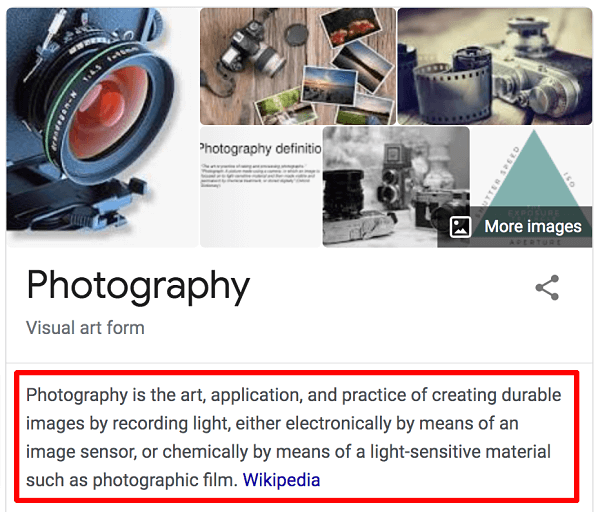
Read that again.
The goal of building your portfolio with free and styled shoots is obviously not to continue working for free forever!
As soon as people start inquiring about your services (rather than you reaching out to them for portfolio building purposes)...
You need to be charging something.
Even if you start out low with your pricing until you can build up both momentum and skills…
Don’t sell yourself short!
Your pricing should at least cover your business expenses and leave room for profit.
So don’t get too caught up in charging based on what other photographers in your area charge.
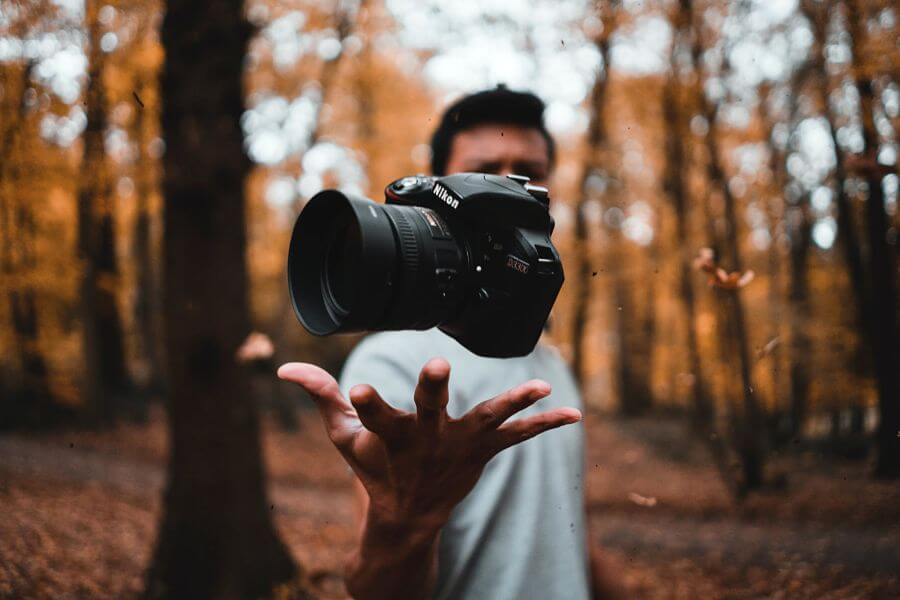
In some cases, these photographers might be setting ridiculously cheap pricing…
And in other cases, they may charge far more than you should be charging!
Pricing your services is highly subjective, and dependent upon your unique circumstances…
Because everyone is serving a different set of clients, and they have a unique set of personal needs.
Your business expenses, clients, personal lifestyle, and financial goals are going to be completely different from the photographer down the road.
So price yourself based on your personal income goals, predictable business expenses, specific needs, and lastly, based on the market and demographics of your area.
7. Creating a Website
If you’re going to become a professional photographer…
Then you’re going to need a professional website.
That’s just a fact.
And if you can afford it…
I do encourage you to hire a graphic designer or a web designer to help you create and brand a website and logo for your photography business.
However, I know that when you are first starting out as a photographer…
Money can be tight.
Especially if you’ve just dropped a large amount of equipment.
So if the thought of spending a couple grand on a website designer is making your eye start to twitch…
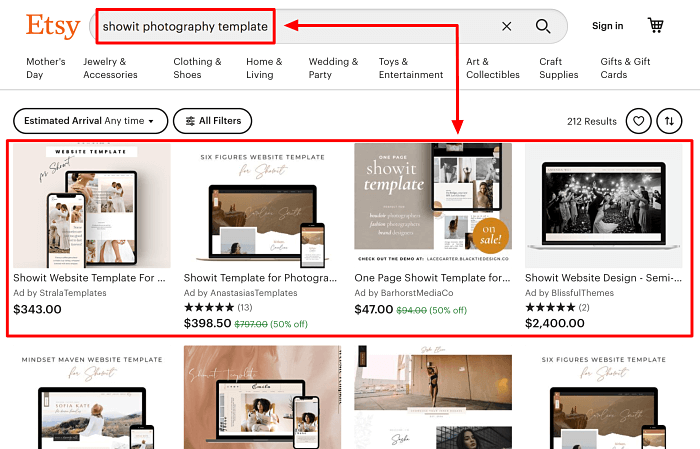
Don't worry: you can build a website yourself.
Even if you are not technologically or artistically inclined in that way!
You can easily build a professional, functional, and user friendly website yourself using a template based website builder.
Some of my personal favorites are:
Another popular website builder that is more specifically geared towards the photography industry is Showit.
If you are in need of a logo as well, Canva is a great resource to use.
They are basically graphic design for dummies, and they even offer a free logo maker!

As a photographer, you should include these basic pages on your website:
A blog is optional, but it is a great tool to boost your SEO rankings, and reach more people.
Plus, a blog helps to establish yourself as an expert in your craft!
8. Marketing Your Photography Business
While word of mouth marketing is great…
It probably isn’t going to cut it if you want to go full time with your photography business.
Which means that you’re going to need some solid marketing and lead generation strategies in place to succeed.

Luckily for you, we actually teach local business owners how to generate a steady stream of new leads for their business in a sustainable way…
And we can do the same thing for your photography business.
If you are interested in how we can help get you started with online lead generation for your photography business...
Then check out our course here!
On top of implementing our lead generation tactics into your business, and having that stunning website you created after step number seven…
You’re going to want a Google My Business Page.
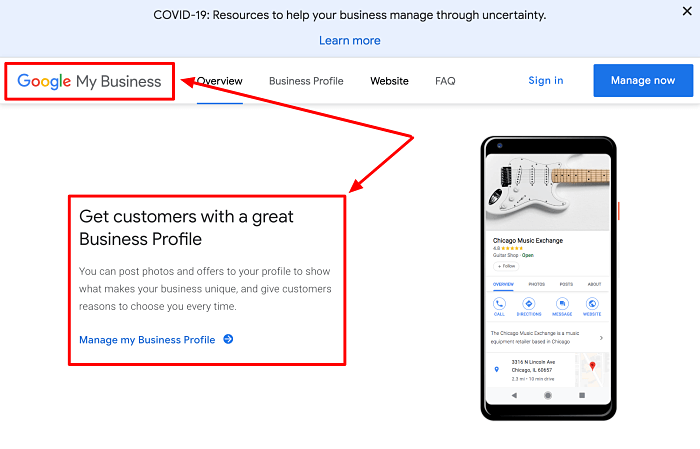
A GMB page is an amazing (and free!) tool that Google offers to business owners that helps boost your business’s visibility within localized search results and in Google Maps.
The account setup is simple, and once completed…
All you have to do is kick back and wait for your confirmation code postcard to arrive in the mail to verify your business address and you’ll be ready to go!
A strong social media presence is also a must-have for any photographer.
My advice is to evaluate who your ideal client is, and then consider which social media platforms they are most likely utilizing.
Some of the best social media site for photographers are:
Although it might take a while to build traction, another fantastic way to actively market your services is through an email list.
You can easily build a pop-up window for your email list into your website, so that people can opt into your email list if they are interested in your content and services.
Marketing to people already within your email list is great, because the very fact that they joined the list in the first place means that they are interested in the services you offer!
One great way to build your email list is by creating valuable “free” content for your ideal client in the form of a PDF.
I put “free” in quotation marks because they will be “paying” for this content by subscribing to your email list!
Their email becomes the currency.
For Example:
If you are a wedding and engagement photographer, you could create a PDF guide to help your couples choose the perfect outfit for their engagement session. Or if you are a family photographer, it could be a PDF on how to make family photos fun and stress free for kids! And to download this PDF, they will need to first subscribe to your email list.
People are much more willing to hand over their email address if they are receiving something in return that builds trust and offers value.
9. Experiment with Your Editing and Style
Have you noticed that photography has changed stylistically over the years?
I mean, is it just me, or have we come a long way from the 2012 “light, bright, and airy” wedding photography style that was so popular?
Anyways…
Editing and photographic style are a huge part of what will make you stand out as a photographer.
But it will take time to truly find what your style truly is.

It’s easy to get caught up in what everyone else is creating…
But don’t get sucked up into editing or stylistic trends that will be gone in a few years.
And don’t be afraid to experiment!
Finding your own photographic style requires breaking out of the “trending” box and finding what works for you and is authentic to your creative abilities.
At this point, anyone with an Iphone 11 can take a great picture…
But it will be your authentic creativity and unique perspective and artistic style that will set you apart as a photographer.
No one else can be you…
And as sappy as it sounds, this is your edge as a creator!
So run with it.
Pros and Cons
of starting a photography business
Pros
For most people who consider starting a photography business, a large draw is that it will allow them to earn a living doing something creative and artistic. And while not every creator wants to earn a living from their artistic expression, for those who do… Photography can be an excellent way to pay the bills, while also doing something that you love.
Another unique trait of many artists and creative entrepreneurs is that they are resistant to the idea of working for someone else! Being self-employed as a photographer will give you the freedom that you desire, and can eventually lead to employing others.
It is much harder to make a living off of photographing landscapes than it is photographing people. While it isn’t impossible to make a living as a nature photographer, the chances of this are slim. With this being said, you will need to be somewhat of a people person if you want to be a successful photographer. This doesn’t mean you have to be an extrovert! But making a connection with the couples, families, and individuals that you are capturing will be important.
The potential to scale your photography business is almost limitless. Perhaps you are a wedding photographer who is ready to hire associate shooters to expand the number of weddings your business can take on each year. Or maybe you’ve considered using your vast industry knowledge to create educational courses and content. Whatever direction you decide to go… The sky’s the limit!
Cons
The reality of the photography world is that it is a hands-on business model. You will spend photographing your subjects, but there will also be extensive hours spent behind a screen editing, sending emails, and keeping up with your books. This means that the majority of the work you will be doing as a photographer is trading your time for money. And this is a poor recipe for long term success and passive income. Doesn’t mean it won’t be worth it, but this is something to consider if you are hoping for a more laid back, hands-off business idea.
In the beginning, you may have trouble booking out your photography calendar. This is because no one wants to hire a photographer without a portfolio of work! And portfolio building takes considerable time. Chances are, the majority of your portfolio building will be working for free or very little compensation. This is what many entrepreneurs refer to as “sweat equity”. Unfortunately, not many people talk about this stage of the business, or how much time and effort it takes.
As technology continues to advance, even our cellphones are capable of taking incredible high quality photos. Because of the user-friendly transformation within the photography world, it seems like everyone and their mother are now advertising their photography business. If you are truly passionate about your craft, and prepared to deal with the saturated nature of the industry… Don’t let this deter you! But be aware of what you’re up against.
Starting a Photography Business Can Work, If You Know This First:
Building a successful photography business is hard work.
Technology has made high quality photos accessible to nearly everyone thanks to their cell phones…
And professional photography has become a thing of luxury.
The professional photography industry is heavily saturated, and you will have to work extremely hard to build up your client base.
Despite that, it can be a rewarding creative business model for those willing to push past the barriers to entry in this industry.

And if you like working with people and running an artistic business…
Then photography might be the perfect fit for you!
But every small business owner faces the struggle of getting new leads for their business…
And so will you.
When I left my job over six years ago to pursue online business…
I explored everything from affiliate marketing to drop shipping.
But the business model that changed everything was local lead generation.
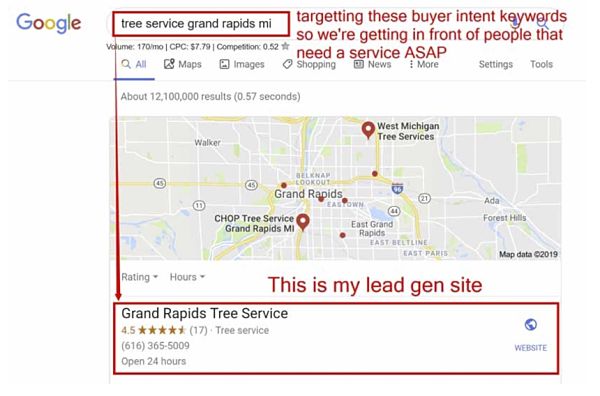
It took me from making around 2K per month, to bringing in well over 50K per month in passive income in less than five years!
Plus, I was able to help other small businesses to grow and thrive by supplying them with a steady stream of viable new leads.
And once the due diligence for my online lead generation “properties” was taken care of, they became virtually self maintaining!
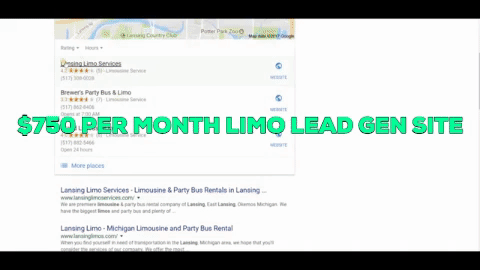
The best part, though, is that anyone can learn this skill set!
Including you.
So if you’re ready to equip yourself with the ability to generate leads for your own photography business…
Or if you're interested to learn about how lead generation can become a business model in and of itself, click here to see how we can help you get started on your lead gen journey today!

